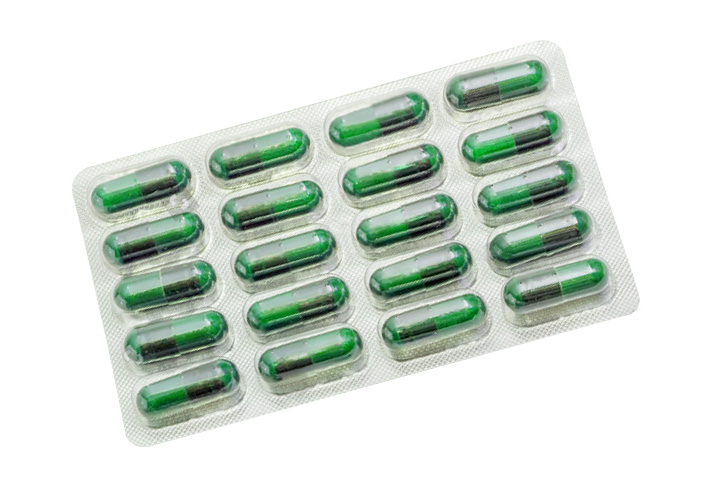Minomycin
Minomycin contains a semi-synthetic tetracycline derivative and therefore belongs to the class of antibiotics. It may only be taken on medical prescription for the long-term oral treatment of severe acne vulgaris.
This medicine inhibits the proliferation of acne bacteria on the scalp and in the follicles of the sebaceous glands. This prevents the formation of inflamed vesicles, pustules and cysts.
What Does Minomycin Contain?

1 film-coated tablet of 50 mg contains:
- Active ingredients: 50 mg minocycline.
Excipients: maize starch, povidone K 25, pregelatinised starch, alginic acid, sorbitol (E420), lactose monohydrate, hypromellose, titanium dioxide (E171), stearic acid, magnesium stearate, macrogol 4000, yellow iron oxide (E172), red iron oxide (E172), black iron oxide (E172).
Forms and Strengths
Minomycin 50 mg: packs of 50 and 100 film-coated tablets.
Uses
Unless otherwise advised, take one film-coated tablet morning and evening with plenty of liquid.
The film-coated tablet should be taken without chewing, at least one hour before meals, with a sufficient quantity of liquid (at least 100 ml of water). Due to the risk of inflammation or ulceration of the oesophagus, Minomycin should not be taken lying down or immediately before going to sleep. If the recommended method of administration causes severe stomach upset, the film-coated tablet may be taken with food or a glass of milk; however, this slightly limits absorption (absorption into the bloodstream).
As a long-term treatment, Minomycin should be continued for at least 4 to 6 weeks. Do not change the prescribed dosage on your own initiative.
Side Effects
Taking Minomycin may cause the following side effects:
Common (affects 1-100 users)
Like other antibiotics, Minomycin may also cause gastrointestinal upset (especially diarrhoea). In addition, loss of appetite, dizziness, drowsiness, nausea, heartburn, vomiting, burning of the tongue, difficulty swallowing, hoarseness, inflammation of the oral mucosa and oesophagus, irritation of the rectum, anogenital itching and hypersensitivity reactions may also occur. Examples of hypersensitivity reactions include asthma, respiratory distress, circulatory disorders, skin oedema (e.g. urticaria), mucous membrane oedema or skin rashes.
Occasional (affects 1 to 10 users out of 1,000)
Myopia
In patients with severe renal impairment, increased blood levels of tetracycline may lead to an increase in blood urea nitrogen (dose-dependent, no problem with normal renal function), an increase in phosphate and acidification of the blood (acidosis). Acute inflammation of the kidneys with acute renal failure, complications of low potassium and phosphate levels (hypokalaemia and hypophosphataemia) may also occur.
Rare (affects 1 to 10 in 10,000 users)
Increased intracranial pressure (pseudotumor cerebri) with symptoms such as headache, blurred vision. Although these two side effects and their symptoms disappear shortly after tetracycline is stopped, irreversible consequences are still possible.
During treatment, deterioration of hearing (tinnitus), alopecia and serious and sometimes fatal skin reactions (erythema nodosum, exfoliative dermatitis, Stevens-Johnson syndrome, erythema multiforme) may occur.
Changes in the blood count have been observed: thrombocytopenia, eosinophilia, haemolytic anaemia, neutropenia and agranulocytosis.
Repeated attacks of cramps, reduced sensitivity to stimuli and paresthesia (tingling, numbness) may occur.
Precautions
Very rare severe skin reactions (including DRESS syndrome) have been observed during treatment with minocycline. These may manifest themselves initially in the torso as a skin rash or allergic reactions (swelling of the face and other parts of the body). Accompanying flu-like symptoms (fever) are common. Stop taking Minocycline at the first sign of such allergic reactions and contact your doctor.
During treatment with Minomycin, sunbathing should be avoided.
The action of antibiotics may be reinforced by other medicines such as anticoagulants (blood thinners) or sulphonylureas (medicines that reduce the amount of glucose in the blood). In the event of simultaneous administration, blood sugar and coagulation parameters should be monitored; if necessary, the doctor should decide to reduce the dose. Please inform your doctor immediately of any signs of hypoglycaemia.
Concomitant use of anti-epileptic drugs or barbiturates (contained in some sleeping pills and sedatives) may reduce the activity of Minomycin.
Medicines containing aluminium, magnesium, calcium or iron as well as lipid-lowering preparations (colestyramine) should not be taken at the same time as Minomycin because of a possible decrease in absorption.
Antibiotic may impair the protection afforded by the contraceptive pill. Women should use other contraceptive methods in addition to Minomycin.
Your doctor will need to monitor your blood, liver and kidney function regularly.
This drug may reduce reaction time and consequently the ability to drive vehicles and use tools or machines.
This medicine contains 2.5 mg sorbitol and 1.8 mg lactose per film-coated tablet.
Please take Minomycin only after consulting your doctor if you know that you suffer from sugar intolerance.
When should Minomycin not be used?
Patients who are sensitive to tetracycline or to any other component of the preparation should not take Minomycin. Examples of hypersensitivity include asthma, respiratory distress, circulatory disorders, oedema of the skin (e.g. urticaria), oedema of the mucous membranes or skin rashes.
The preparation must not be used in cases of severe renal or hepatic insufficiency, during pregnancy or while breast-feeding.
This drug should not be used in children under 8 years of age.
The active ingredient can bind to calcium and thus accumulate in bone tissue, which may lead to temporary growth problems and tooth discolouration in children under 8 years of age. In any case, children under the age of eight should not take Minomycin.
Treatment with Minomycin should not be started shortly before, during or shortly after treatment of acne with isotretinoin, as both drugs may in rare cases cause a transient increase in intracranial pressure, which may lead to headaches and blurred vision.
Pregnancy and Breastfeeding
If you are pregnant, intend to become pregnant or are breast-feeding, you should not take Minomycin.
The active ingredient is also passed on to breast milk, which is why Minomycin should not be used during pregnancy. Please inform your doctor or pharmacist if you are pregnant, may become pregnant or are breast-feeding.



